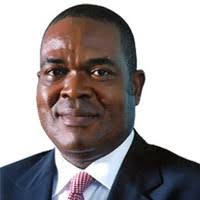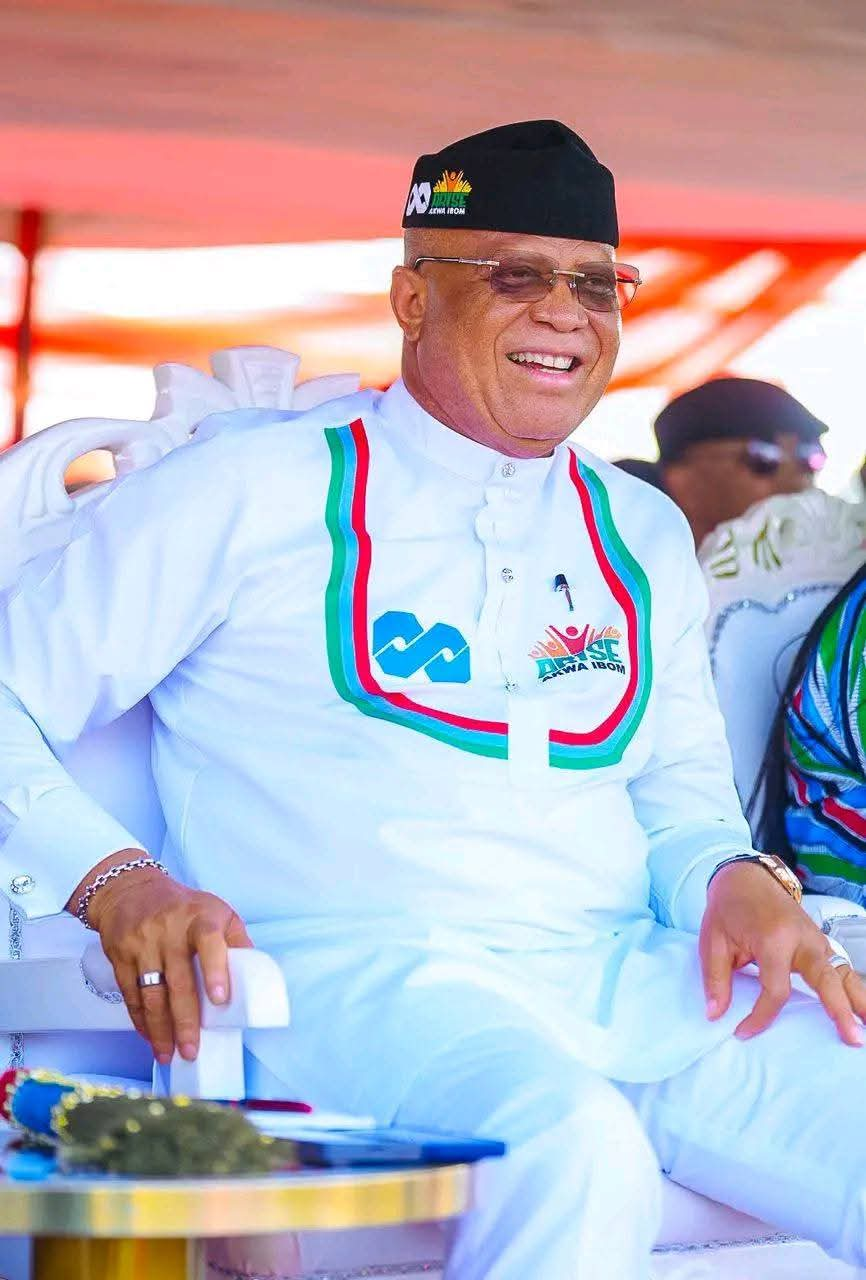By Marcel Okeke
In what looks like a propaganda blitz, several online and hardcopy publications have in recent times been carrying a report that Nigeria’s economy attracted huge foreign portfolio investment (FPI) inflows totaling US$3.48 billion in the first six months of 2024. This is as against only US$756 million of FPI that came into the country the same time in the previous year.
The publications (including the ‘Platform Times’) said: “This is attributed to the Central Bank of Nigeria’s (CBN) economic reforms, which have continued to enhance Nigeria’s position as an attractive investment destination.” The publications stated that “this resulted in the huge volume of FPIs in six months of reforms, compared to the meagre inflow in the pre-reforms era.”
This trend, as all the publications concluded, reflects growing investor confidence in the CBN’s ability to manage the financial system, and the economy, and constitutes a positive signal for global investors.
However, while it can be conceded that rising inflow of FPIs into Nigeria is policy-driven, it is even more pertinent to vividly point out and analyze the costs (real and potential) of such a trend on the fragile Nigerian economy.
Specifically, the CBN has been ‘fighting’ runaway inflationary trend in the country by consistently increasing the benchmark interest rate in the banking system. From about 18 per cent in May 2023, the apex bank has raised the Monetary Policy Rate (MPR) to 27.50 per cent since November 2024. This is a jump of almost 10 per cent in 18 months!
In other words, the CBN interpreted the soaring inflation rate in Nigeria since May 2023 as a ‘monetary phenomenon’; that is: only so much money in circulation was driving inflation sky-high. But this stance has been proven wrong, since the consistent increases in MPR have failed woefully to tame the runaway inflationary trend.
In point of fact, the hiking of the MPR and other monetary policy instruments such as Cash Reserve Ratio (CRR) practically dried up credit in the financial system. While the apex bank applied the CRR to ‘suck away’ perceived much liquidity from the deposit money banks (DMBs), it used the MPR to drive lending and deposit rates.
This has played out in the financial system in the past two years, and largely led to the ‘crowding out’ of many businesses and households in the local credit market. Many Micro, Small and Medium-scale Enterprises (MSMEs) have been scotched to death by lack of access to (affordable) funds. Hitherto operating intervention bodies that were giving loans at concessionary rates have all been shut down by the CBN.
This tight monetary stance has manifested in the DMBs charging interest rates of between 30 to 40 per cent per annum on their credit facilities. As survival strategies, many businesses have had to scale down their installed capacities, or relocated elsewhere, to enjoy lower-cost operating environment.
And this is why the CBN loomed large with its bouquet of offerings: Treasury Bills of various tenures. In line with its hiked MPR, the apex bank offered mouthwatering rates to institutional and retail investors who subscribed to the T-Bills. These highly attractive yields were mostly packaged to lure foreign portfolio investors (FPIs).
The belief of the CBN is that inflow from the FPIs would be used to stabilize the highly volatile foreign exchange (FX) market, where paucity of FX remains the critical issue. But inflows from FPIs are ‘hot money’, chasing huge returns and other attractions across the globe.
Generally, FPIs can be highly volatile, leading to rapid inflows and outflows of capital—which can destabilize any economy. No wonder, therefore, in spite of the reported huge FPI inflow by the CBN, the apex bank is yet to achieve substantial stability of the FX market.
It has also come to show that the huge inflow and outflow of the FPIs in Nigeria in recent times, are contributing to the upward pressure on the exchange rate. This is because virtually at every point in time, huge sums of FX are being pulled out by the foreign investors to other climes.
Put differently, huge FPI inflows into Nigeria have been somehow responsible for liquidity challenge in the FX market. Often, many of the FPIs ‘cash out’—or suddenly withdraw their funds—causing credit crunch and macroeconomic instability.
It goes without saying that FPIs as ‘hot money’ flow in and out of the economy quickly, creating instability and undermining domestic policies. This, for Nigeria, largely accounts for why in spite of the huge FPI inflows being flaunted, the country’s FX market remains vulnerable to the vagaries of inflows from crude oil sales, among others.
In all, the single-minded pursuit of FPIs by the monetary authority in Nigeria seems to have blinded it to the root causes of the lingering high inflationary trend, and other distortions. For instance, the full floatation of the Naira in the FX market, when it was done mid-June 2023, looked a peremptory action.
A managed FX float, in Nigeria’s weak economic condition, would have fared better for the country. The full floatation, now euphemistically called exchange rates unification, suddenly sank the Naira in a bottomless pit in the global FX market place. All efforts so far are only aimed at restoring some strength to the weakened local currency.
Also, it has become too obvious that the runaway inflationary trend in the country in the past two years, was not a ‘monetary phenomenon.’ In point of fact, it was essentially one fiscal ‘fiat’ that triggered the sudden spike in inflation: namely the sudden full removal of fuel subsidy on April 29, 2023.
Although, the cesspool of corruption and malfeasance that the subsidy phenomenon was, necessitated its removal, the abrupt and ill-digested approach in doing so, has continued to wreak havoc on the fundamentals of the Nigerian economy.
Fuel subsidy removal not only spiked the price of petrol (by over 400 per cent) but also the prices of all goods and services in the country. From below N200 per liter at end-May 2023, the price of fuel has jumped to hover around N1000 per liter since end-December 2024.
In consequence, headline inflation rate that was about 22 per cent in June 2023, skyrocketed to almost 35 per cent at end-December 2024. Rather than adopting monetary-fiscal initiatives to dampen the raging inflation, the CBN opted to deploy essentially monetary policy tools to single-handedly ‘fight’ the inflationary ‘monster.’
The truth is that the so-called ‘drop’ in the inflation rate from the 2024 year-end level to 23.71 per cent in April 2025, is artificial. The National Bureau of Statistics (NBS) merely rebased the Consumer Price Index (CPI), to achieve lower inflation rates.
It has therefore been an anomaly that the CBN has been ‘fighting’ high inflation rate at huge costs to the economy. The high interest rate regime that the CBN unleashed to keep attracting FPIs has done a lot of harm to the economy. No business entity that left Nigeria in the past two years did not refer to high cost of funds and FX challenges as reasons for their exit.
If the huge FPIs inflow has been really reliable and beneficial to the economy, would the Federal Government of Nigeria be cap-in-hand borrowing from the World Bank, the IMF, the African Development Bank (AfDB), African Export Import Bank (AfreximBank), etc.? FPI is ‘hot money’, and cannot be relied upon to address the deep-rooted FX problem, and macroeconomic volatility in Nigeria.
Adoption of properly harmonized fiscal-monetary initiatives in ‘fighting’ inflation, and improving FX inflow would be more palatable and business-friendly for Nigeria. The current rabid pursuit of FPI at huge costs to the economy is obviously ruinous!
The author, Okeke, a practicing Economist, Business Strategist, Sustainability expert and ex-Chief Economist of Zenith Bank Plc, lives in Lekki, Lagos. He can be reached via: obioraokeke2000@yahoo.com (08033075697) SMS only
‘Nigeria First’: Brainwave or Economic Blueprint?
By Marcel Okeke
Apart from President Bola Ahmed Tinubu’s amorphous ‘Renewed Hope’ mantra, it looks obvious that there has not been any discernible overarching economic blueprint by his administration. This accounts for why there has been a lot of ‘trial and error’ initiatives and failed policies in the past two years of his four-year tenure.
For the same reasons, the unintended outcomes of many of the policies have far outweighed their so-called gains. Indeed, policy somersaults have become a hallmark of the government of the day, so far, as it gets overwhelmed with providing all manner of palliatives to assuage the pains of the citizenry.
Under the banner of economic reforms, not a few policies have been put in place; but most have ended up unleashing poverty, joblessness, and destitution on majority of the citizenry. Nigerians have been exposed to the ravaging effects of an unprecedented hyperinflationary trend that brought their purchasing power to its weakest in several decades.
From about 22 per cent in May 2023, the headline inflation rate spiked to almost 35 per cent at the close of 2024. Similarly, the Naira exchange rate against the dollar nosedived from below N480/US$ as of end-May 2023 to over N1620/US$ of today.
A liter of fuel (Premium Motor Spirit, PMS), for instance, which sold for about N200 at end-May 2023, now goes for N1000 or more. Tight monetary stance saw the Central Bank of Nigeria (CBN) raise its benchmark Monetary Policy Rate (MPR) from about 18 per cent in June 2023 to 27.5 per cent since November 2024. A jump of almost 10 per cent in 20 months!
This very high interest rates regime, indicated by the soaring MPR, has thoroughly whittled access to funds to Small and Medium-scale Enterprises (SMEs) and other economic agents. Not a few businesses have shut down or fled the country due to the lingering policy-induced harsh operating environment.
The resultant effect of all this has been uptick in import-dependency by more Nigerians. Thus, the Nigerian Economic Summit Group (NESG’s) data show that Nigeria’s import bill rose by a whopping 63.3 per cent (year-on-year) to N14.7 trillion in the third quarter 2024, up from N9 trillion in the same period a year earlier.
The NESG said in its ‘Foreign Trade Alert’ that “the surge (in imports) underscores the country’s growing dependence on foreign goods amid stalled local production efforts.” Noting that much of the import expenses went to energy-related items, the NESG said “until local (refining) capacity issues are resolved, the demand for FX to finance imports will remain elevated.”
It is against this background that the approval by the Federal Executive Council (FEC) of a Presidential Executive Order early in May to introduce a ‘Nigeria First’ policy, seems most apposite. But while the nitty-gritty of the new policy is yet in the making, the entire idea of the initiative demands some interrogation and analyses.
First, ‘Nigeria First’ is coming at a time it looks like a mimicking of the United States’ mantra ‘America First’, put together by President Donald Trump. But, while the similarity in name is obvious, Trump’s ‘America First’ is framed to ensure that America’s interests are paramount, and that the country would act to protect and advance them.
‘Nigeria First’, on the other hand, from available information, is focusing merely on getting ministries, departments and agencies (MDAs) to begin to procure locally-produced items, rather than importing. Towards this end, the Bureau of Public Procurement (BPP) is being mandated via the Executive Order to play a critical role by ensuring that the MDAs procure available and durable local substitutes to all (hitherto) imported goods and services for their needs.
Under Trump’s ‘America First’, according to The Wall Street Journal, the world is seen as an arena where nations, non-governmental actors, and businesses compete for power and resources. The new doctrine is also seen as a manifestation of rising nationalism globally, with other countries also prioritizing their domestic interests.
The question is therefore apposite as to whether Nigeria truly has the guts and muscles to go beyond the symbolism of forcing “local content” improvement on the MDAs only? While America would be driven by “rising nationalism” and “prioritization of its domestic interest”, Nigeria seems set to apply a mere placebo.
A true replication of ‘America First’ in Nigeria would require a truly diversified economy: where substantial foreign exchange earnings come from many other sources than export of crude oil. Unfortunately, the Nigerian economy, despite all pretenses, is yet largely a mono-product economy; and it’s been so for many decades.
Related to this quagmire is the socio-cultural fixation of Nigerians with the consumption of foreign goods and services. Irrespective of social class, creed or tribe, Nigerians have continued to live with a high preference for foreign goods; and an ever rising propensity to import them. This proclivity also underpins thriving smuggling ‘business.’
It therefore goes without saying that any meaningful attempt at making Nigerians consume ‘Made-in-Nigeria’ must place a very high accent on altering the tastes and predilections of our people. It also entails deliberate leapfrogging of the economy to improve production and productivity; and drop the toga of a mere consuming economy!
There is also the challenge of ‘Nigeria First’ being hosted and driven only by the Bureau of Public Procurement (BPP). Apart from the entrenched ruinous corruption of which BPP is not immune, the agency is unlikely to have the full complement of technocrats and other resources to attain the ‘nationalistic’ initiative of ‘Nigeria First.’
Essentially, BPP is set up for monitoring and overseeing public procurement, ensuring transparency, efficiency, competition, integrity, and value for money in government contracts. But, if the much-touted ‘Nigeria First’ is to truly impact Nigeria, its articulation and execution requires a tight and broad public and private sector partnership at all levels.
The requisite psycho-sociological and cultural re-orientation of Nigerians with respect to the consumption of ‘Made-in-Nigeria’ is certainly outside the purview of BPP. The badly needed accelerated filling up of the extant huge infrastructural gap is definitely outside the BPP’s domain.
The diplomatic maneuvering and trade (re-) alignments within the Economic Community of West African States (ECOWAS) as well as under the African Continental Free Trade Agreement (AfCTFA) are also very critical. At the moment, therefore, it looks safe to say that Nigeria is ‘too weak’ to effectively realize the ‘Nigeria First.’
This, in part, is why it is necessary to admonish that what the country is about to put in place is not a mere caricature of ‘America First.’ The Bola Ahmed Tinubu administration has had many failed or ill-digested policies, and cannot afford to have one more. ‘Nigeria First’ deserves be taken through a legislative process to attain proper legal existence.
‘Nigeria First’ should not be a mere brainwave; but a properly articulated blueprint for an accelerated and sustainable development of the country. That is the only expectation!
The author, Okeke, a practicing Economist, Business Strategist, Sustainability expert and ex-Chief Economist of Zenith Bank Plc, lives in Lekki, Lagos. He can be reached via: obioraokeke2000@yahoo.com (08033075697) SMS only





